Many firms also employ freelance video editors. The biggest perk is that they can work anywhere and anytime and are free to pick and choose which assignments they wish to work on and be their boss and the master of their time.
Video editing is popular worldwide because it plays a vital role in planning and creating marketing strategies and campaigns. Marketing strategies have moved from just using only photos to including videos in their campaigns, giving rise to a healthy demand for talented video editors.
Marrying video clips, sound effects, and graphics can be a riveting and gratifying job. Video editors usually work with existing footage, graphics and sounds and use their talent to tell a story.
Once you’ve shot a music video or filmed a movie, it’s time to move to the post-processing stage. Just as is the case with filming, post-processing requires a healthy mix of creativity and technical know-how.
These days video editing is usually done on a computer with comprehensive video editing programs called non-linear editors, or NLEs for short. What this means is that the editor can view, cut, and arrange digital video in any order he wishes without having to sit through the whole video.
What exactly does a Video Editor do?
In addition to working with existing sound and video clips, a typical day for a video editor may include creating storyboards and producing and editing videos for various platforms.
A video editor also works on creating and adding graphics, special effects, animations, sound effects music along with sound bites.
Let’s get into the steps you need to take to freelance as a video editor.
How to start a Video Editor career?
1. Decide if it’s for You
Before deciding to make that switch from a full-time job to a freelancing career, you need to ask yourself if being a freelancer is really what you want.
An office job provides stability, the safety net of regular pay and social interaction with your colleagues.
Freelancing, on the other hand, can be unpredictable. There may be some days that you will find go by with no projects in hand at all.
On the flip side, the advantages are that you aren’t going to be given more work than you can handle. You will be free to choose the duration of your work.
However, it is also essential that you have the necessary self-discipline to stick to a schedule and comply with deadlines if required.
2. Learn And Practice: A Lot
Like attempting to pick up any other skill set, you will need to learn and practice video editing. Read up on various editing software in the market and choose to learn the one you have the most affinity towards.
If you are looking to be a self-taught video editor or looking to indulge in video editing as a side hustle, your thirst for knowledge should be limitless. There is always new knowledge to be discovered.
Work on practice projects. Learn a new technique. These projects can be used to build a portfolio and can be shared to showcase your skills to prospective clients.
3. Get The Best Hardware You Can Afford
Video editing is a resource-hungry process. Unless your computer system has the minimum required specifications, the system you use will slow to a crawl and make video editing a cumbersome procedure.
Sufficient RAM and plenty of hard disc storage or a cloud storage subscription such as Google Drive are necessary prerequisites for any video editor.
Using a Solid State Drive (SSD) will also help speed up the video editing process due to its access speed.
4. Landing Your First Client
Getting the first client is often the most challenging part for a freelance video editor. It is also the stepping stone to bigger and better-paying jobs.
You can start with freelancer platforms to acquire your first clients and build your income flow for a successful freelance career.
Having a client in the bag will help you get referrals and testimonials that you can tout to prospective clients as your work experience. This will make a compelling argument in your favour when deciding to whom to assign the work.
To get your first client, you may very well have to work for less than you expect or undertake a project that you may not find particularly gratifying to work on.
Skills Required For Freelance Video Editors
1. Attention to the Detail
It is imperative for a video editor to achieve absolute perfection in the video editing process, as even seemingly insignificant errors may be spotted by the audience.
It is necessary for a video editor to have a good eye for camera angles and to synchronise film and sound elements.
2. Should Have a Good Memory
The video editor is responsible for organising the video timeline and sequence of the content according to the director’s vision. There may be some sequences that are not quite in order. All these have to be rearranged appropriately.
This is where a good memory would be essential.
3. Communication
It is vital to maintain a flow of communication, both written and verbal, with your colleagues and your clients on the set, as good communication is vital to avoid any misunderstandings.
4. Be Flexible
The video production process will involve a lot of changes, which will entail you to be adaptable to changing situations.
There may be production details, or the director may have an 11th-hour requirement that needs to be taken care of on priority. A freelance video editor should take these unexpected developments in his stride.
Tools Available For a Freelance Video Editor
An overwhelming majority of businesses use video as a marketing tool.
To tap into this vast market, it is essential that you must use good video editing software that can help you showcase your products by producing professional-looking content for various social media platforms like Instagram, Facebook and YouTube.
There are many easy-to-use video editing programs that will enable you to stand out from the crowd and help you on your video editor career path.
1. Adobe Premiere Pro
If you are in the market for professional video editing features, Adobe Premiere Pro is the best video editing software out there, and it works on both PC and Mac systems.
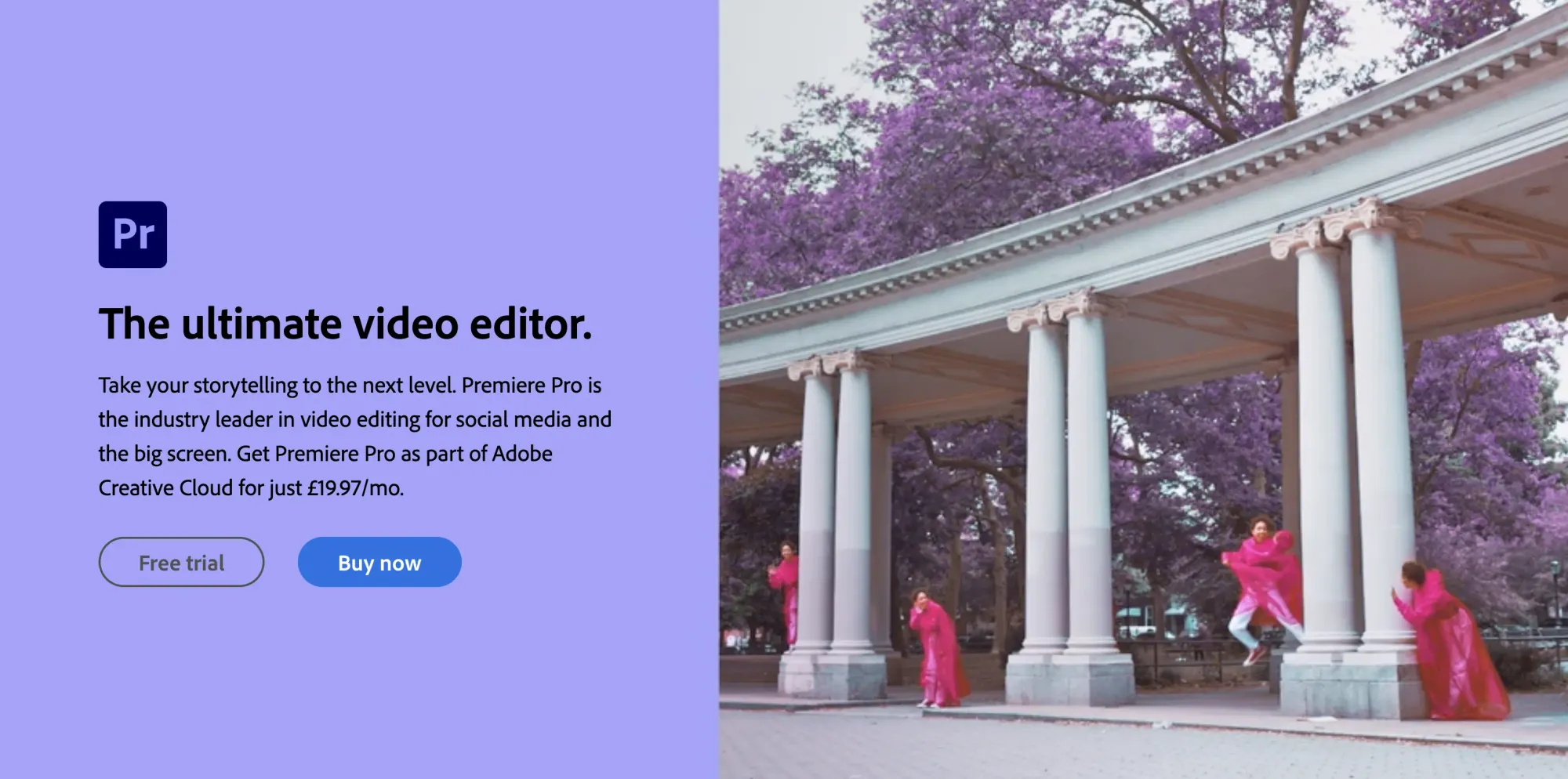
Adobe Premiere Pro has the reputation of being an industry-standard tool and plays a part in creating everything from YouTube videos to big-ticket Hollywood movies.
Adobe Premiere Pro is one of the most powerful applications, but to use Premier Pro to its full potential would require you to have a powerful computer that can keep up with it.
2. iMovie
iMovie is a popular video editing tool that comes bundled with Mac OS. Similar to native Apple apps, iMovie uses a simple drag-and-drop interface for importing and editing files.
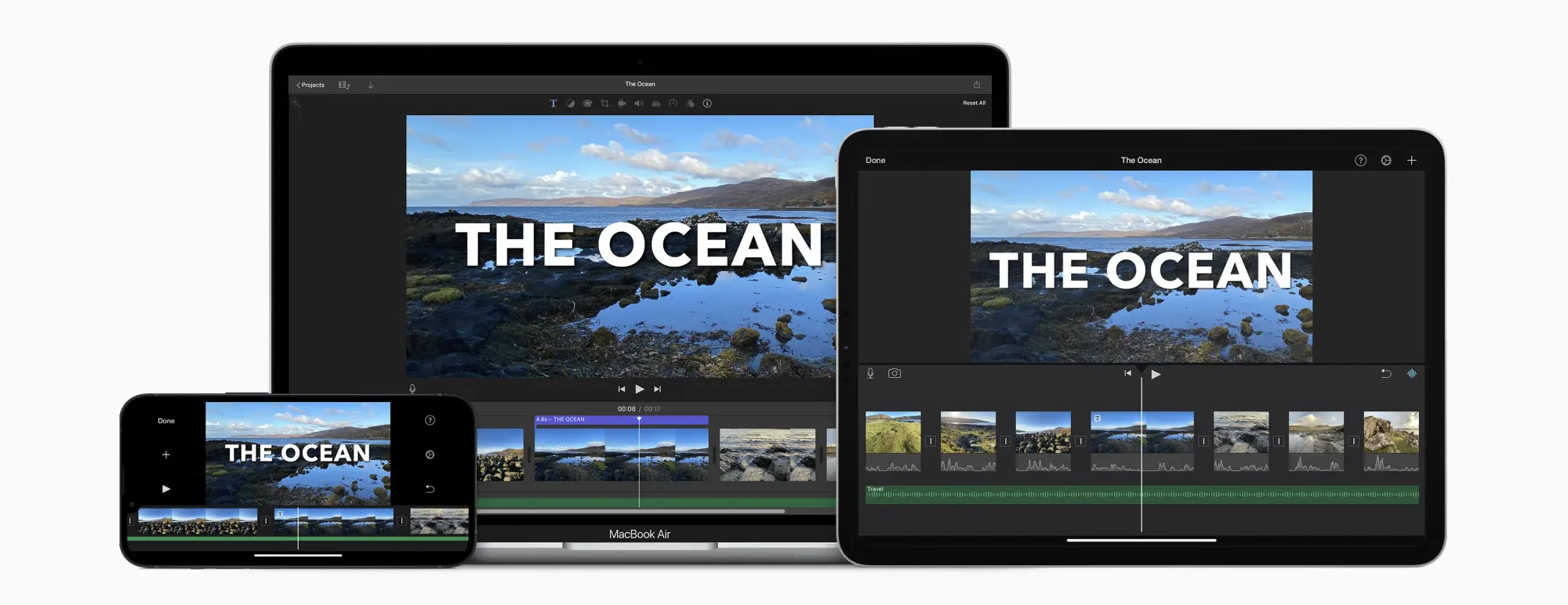
It’s an uncomplicated way to create compelling videos that will give a boost to your YouTube marketing efforts and set you on the path to becoming a YouTube Editor.
3. DaVinci Resolve
DaVinci Resolve packs in many useful features, including colour correction, visual effects, 8k editing and audio post-production in a single tool. That is the reason why DaVinci Resolve is the video editing software of choice for video editing professionals.
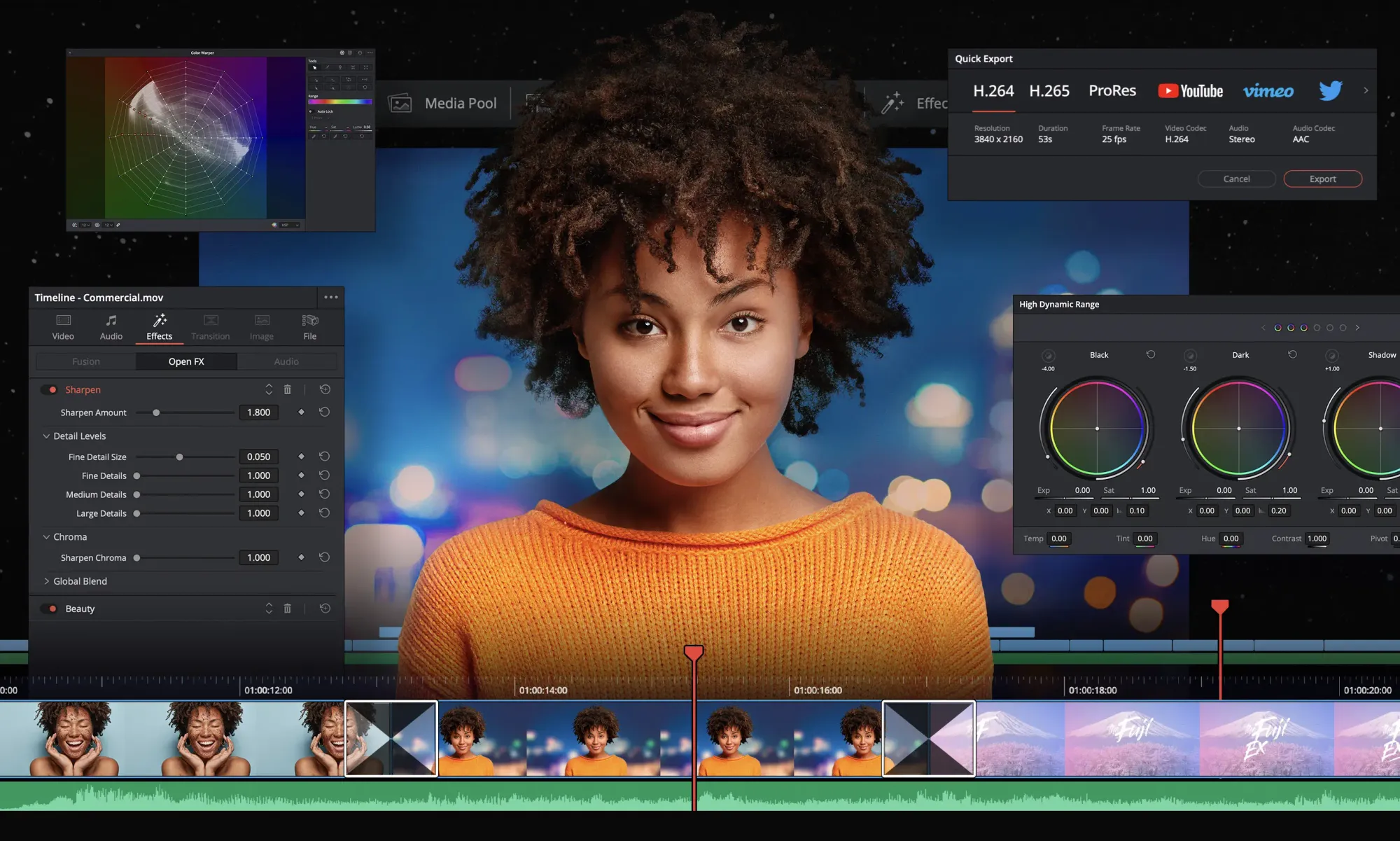
DaVinci supports both offline and online editing and is suitable even for resource-hungry formats such as RAW and H.264.
Best Freelancing Websites for Video Editors
1. Behance
Behance is a great freelance job site for aspiring video editors. Jobs are posted regularly, and Behance also makes it easy to put together a portfolio which makes it easy for clients to evaluate your work.
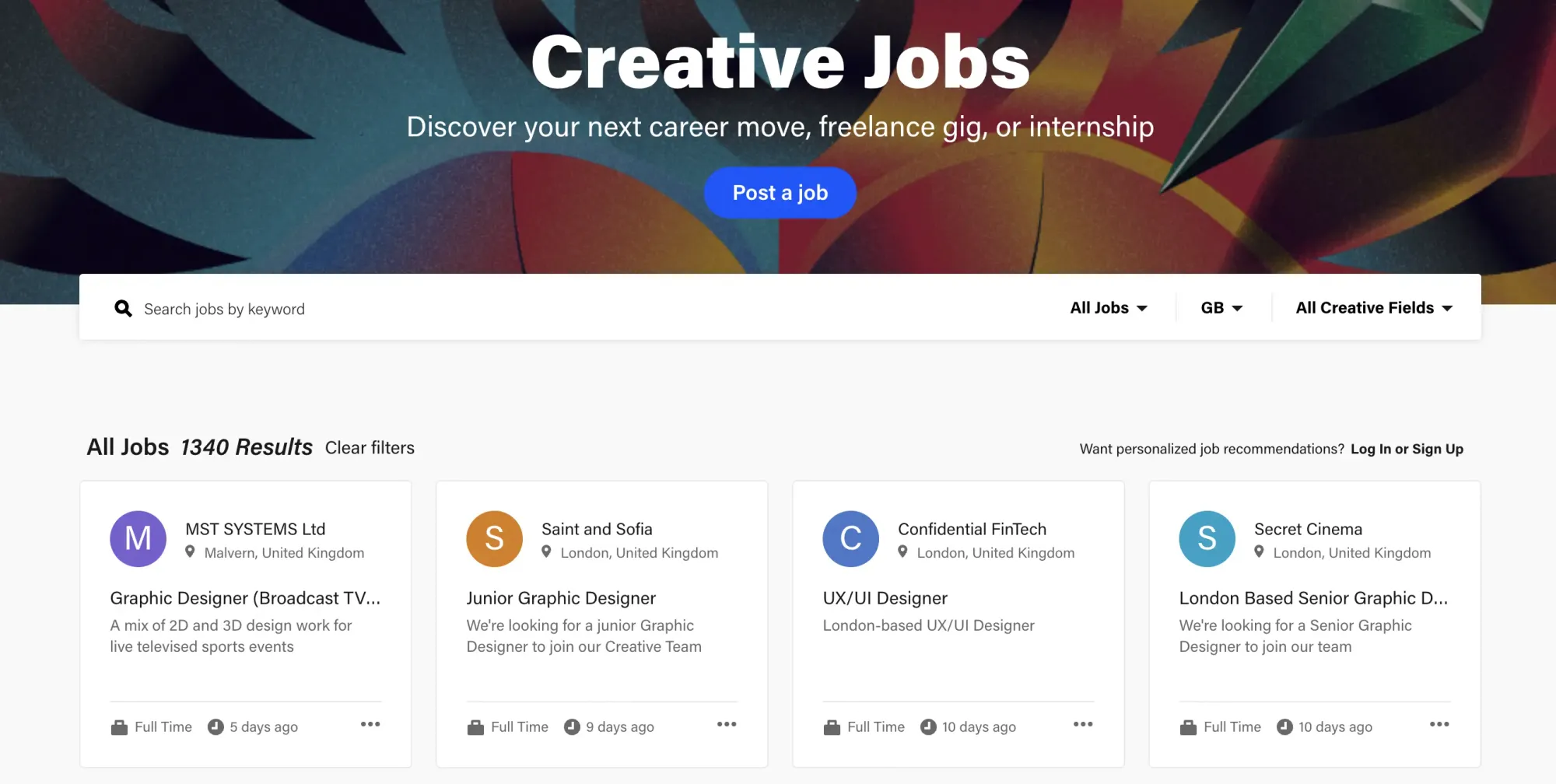
2. Assemble.tv
Assemble is a curated network of directors, photographers, creative directors, motion artists and more.
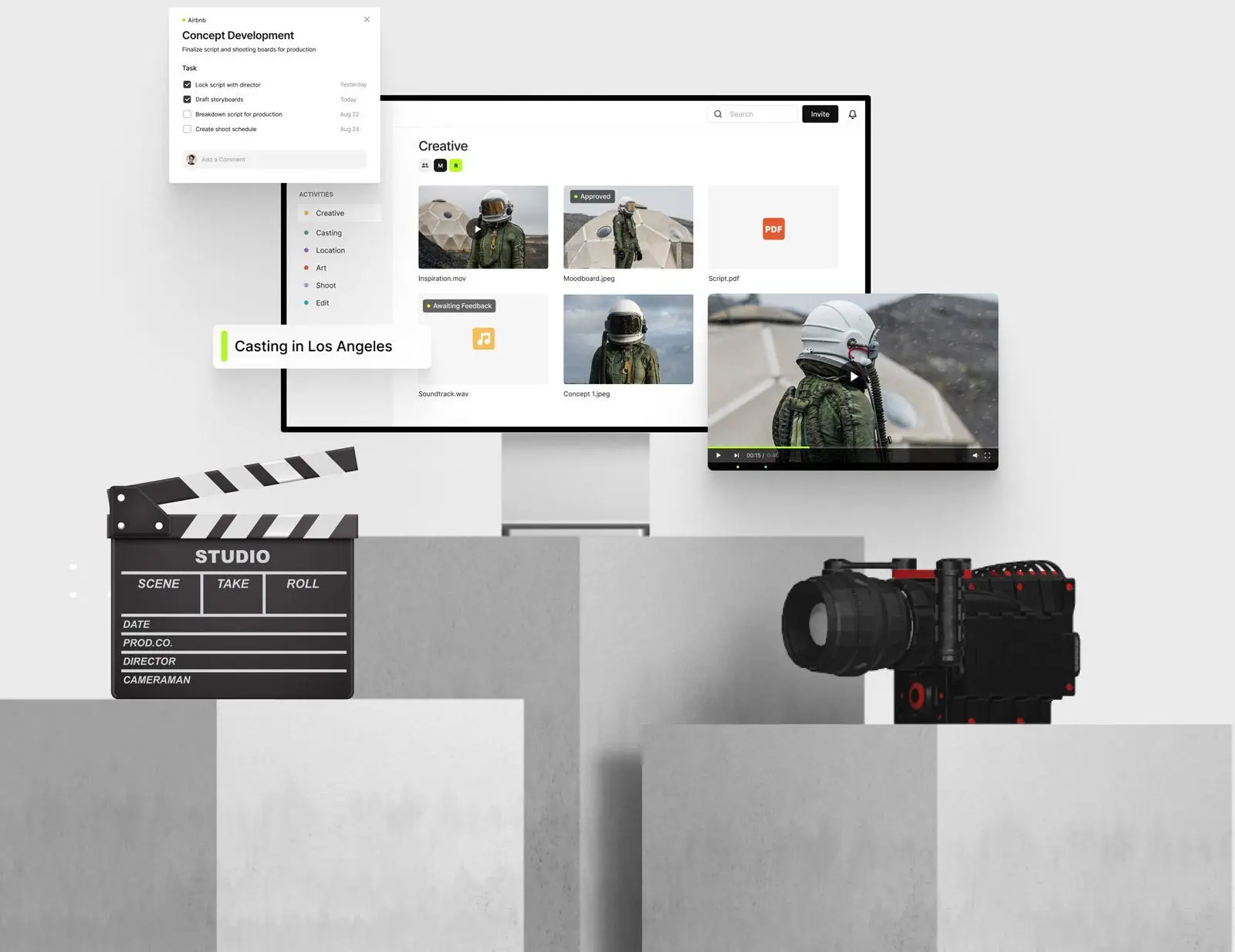
They work with popular brands to help them connect with top-notch creative talent. Because of this, they have a rigorous screening process to ensure their quality standards are met before the editor is accepted into their network.
3. Production Hub
Production Hub is a great palace to find jobs that could put your editing skills to good use.
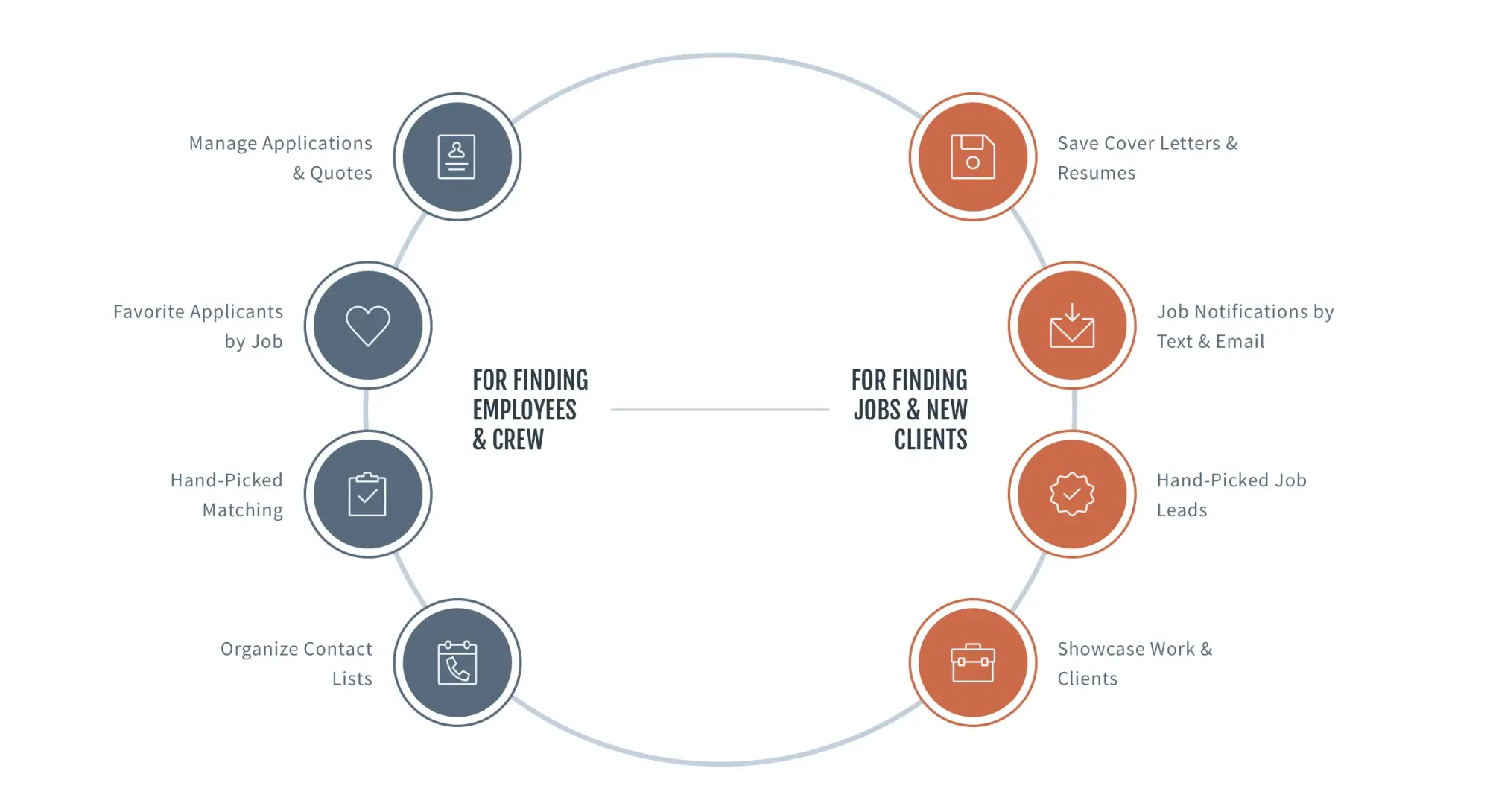
As it is a film-centric job board, you will be competing with lots of other professionals.
Production Hub charges $5.99 a month. It is a worthwhile investment as you get access to quality job offers from reputed companies. You may even get a connection with a popular TV network or film studio.
4. Upwork
Even if you're new to freelancing, you've probably heard about Upwork. There are a lot of freelance websites out there, but Upwork is the best. That's because it offers the perfect balance of features and benefits.

Upwork is the world’s most used, most important, and largest freelancing website. According to statistics, it has more than 12 million registered users and more than 3 million active clients.
5. Fiverr
Fiverr is the second most preferred freelancing job site. It is known for offering highly skilled services at bare minimum costs.

Individual freelancers create relevant gigs, and the buyers (clients) buy them. The surest way to succeed on Fiverr is to focus on specialization. A freelancer should create relevant gigs in a particular niche. He/she must be able to sense the market gap, and by utilizing his/her skill, offer valuable services.
Conclusion
Video editing can be a lucrative career option. With plenty of hard work, the right mindset and, you can make it in the field of video editing. First and foremost, you will need to develop a strong video editing skillset. This can range from skills in editing, encoding, colour grading, and motion graphics.
You will also need to build a portfolio that will showcase your skills to potential clients. One way of doing this is by creating video content and uploading it to your blog or website or by editing existing videos. Once that is done, you can start browsing for jobs on online job boards or pitch your services to production companies in your vicinity.
FAQs
What are the ideal qualities of a good Video Editor?
A good Video Editor is required to have a keen eye for detail. This will enable them to catch potential errors in video footage before the content is released to the public. It is essential to cut out unnecessary objects, repeated scenes, typos in graphics etc., and avoid any production delays.
How much money do freelance video editors make?
There are various factors that affect the income earned by freelance video editors. Some of them are the location, experience, and niche chosen. On average, freelance video editors based in the US make around $37 per hour, as per research conducted in 2020.
How much should you charge clients?
Irrespective of whether you choose to charge on an hourly basis or when you complete the project, the charges will vary based on the project brief and its complexity. The initial rates should be set on market trends, what competitors are charging and based on your experience as well. It is essential to be prudent while setting a rate for your client to ensure that they get back to you with more work.
What are the most commonly used tools for video editing?
The most commonly used software applications for video editing are Adobe Premiere Pro, Apple Final Cut and Avid Media Centre. Large production companies and the bigger studios use Media Centre. Smaller production companies prefer adobe Premiere Pro and Apple Final Cut, independent film companies as well as independent directors.
Do video editors need formal education?
A degree is not a prerequisite for becoming a video editor. That said, certain companies specifically request a degree in cinematography or allied fields. Having a degree won’t do any harm, particularly in the disciplines of filmmaking and videography.
Some companies may emphasise the need for applicants to have graduated or have knowledge of specific disciplines. Having a degree in something like film and television studies, media production or film and media will prove helpful if you are considering a career in video editing.






